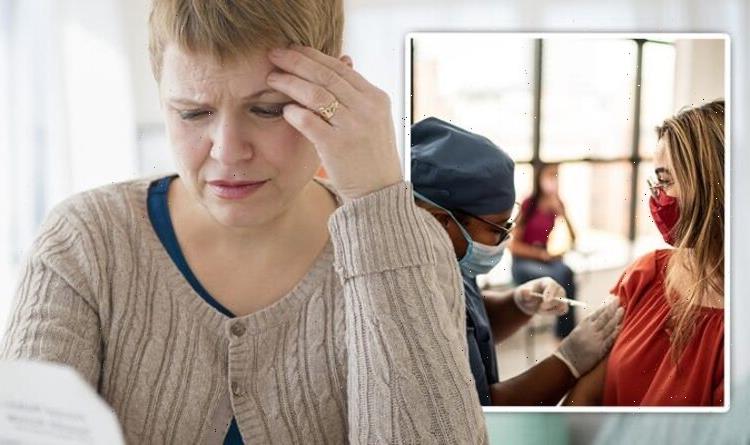Dr Hilary Jones compares coronavirus vaccine to flu vaccine
We use your sign-up to provide content in ways you’ve consented to and to improve our understanding of you. This may include adverts from us and 3rd parties based on our understanding. You can unsubscribe at any time. More info
Secondary school children aged 11 to 15, who were also eligible for the free shot, won’t be offered one either when winter approaches again later this year. Such a move follows a worrisome winter late last year when a record 35 million people were offered the flu vaccine to bolster the nation’s immunity. An NHS letter read: “In 2022/23, the NHS flu vaccination programme will be offered to patient groups eligible in line with pre-pandemic recommendations.”
This means that in order to be eligible for a free flu vaccine for the winter of 2022/23, you must either be:
- Aged 65 or older
- Six months under 65 years of age, if you are in clinical risk groups
- All children aged two to 10 by August 31, 2022
- Pregnant women
- Those in long-stay residential care home
- Carers
- Close contacts of immunocompromised individuals.
“Vaccination is also recommended for frontline healthcare workers and social care workers,” the NHS added.
However, flu jabs for this group “should be provided by employers as part of the organisation’s policy to prevent the transmission of infection”.
The letter added: “Seasonal flu vaccination remains an important public health intervention and a key priority for 2022/23.”

Flu vaccination will still be given to those eligible in order to “reduce morbidity, mortality and hospitalisation”.
The NHS predict that there will be “winter pressures” again later this year, adding that it could include “further outbreaks of COVID-19”.
Doctor Leyla Hannbeck, the chief executive of the Association of Independent Multiple Pharmacies, commented on the update.
“No one has communicated to the public that the offer of flu jabs this year is going to be any different to last year,” she told The Telegraph.

Doctor Hannbeck said: “Last year over-50s were being told they should get their jab.
“Now the advice has changed, but no one is explaining why. It’s going to cause so much confusion.”
The guidance was given in line with advice from the Joint Committee on Vaccination and Immunisation (JCVI) and Department of Health and Social Care.
However, JCVI minutes from December suggest that it would still be “acceptable” to vaccinate the 50 to 64-year-old age group “if funding [was] available”.
This suggests the removal of free NHS jabs for an extended cohort was a financial decision.
Yet a Whitehall source said: “‘We are getting back to business as usual.
“It made sense to expand the flu jab offer during the pandemic when we were concerned about the twin dangers of Covid and flu.
“But we need to get working in the way we used to, as part of living with Covid.”

The flu jab
The flu vaccine is offered every year to help protect people from getting severely ill from the flu.
Those eligible for the flu jab are recommended by the NHS to get the vaccine in the autumn or early winter.
Given at GP surgeries and pharmacies, as with any vaccine, side effects are to be expected.
Side effects might include a raised temperature, muscle aches, and a sore arm.
Source: Read Full Article






